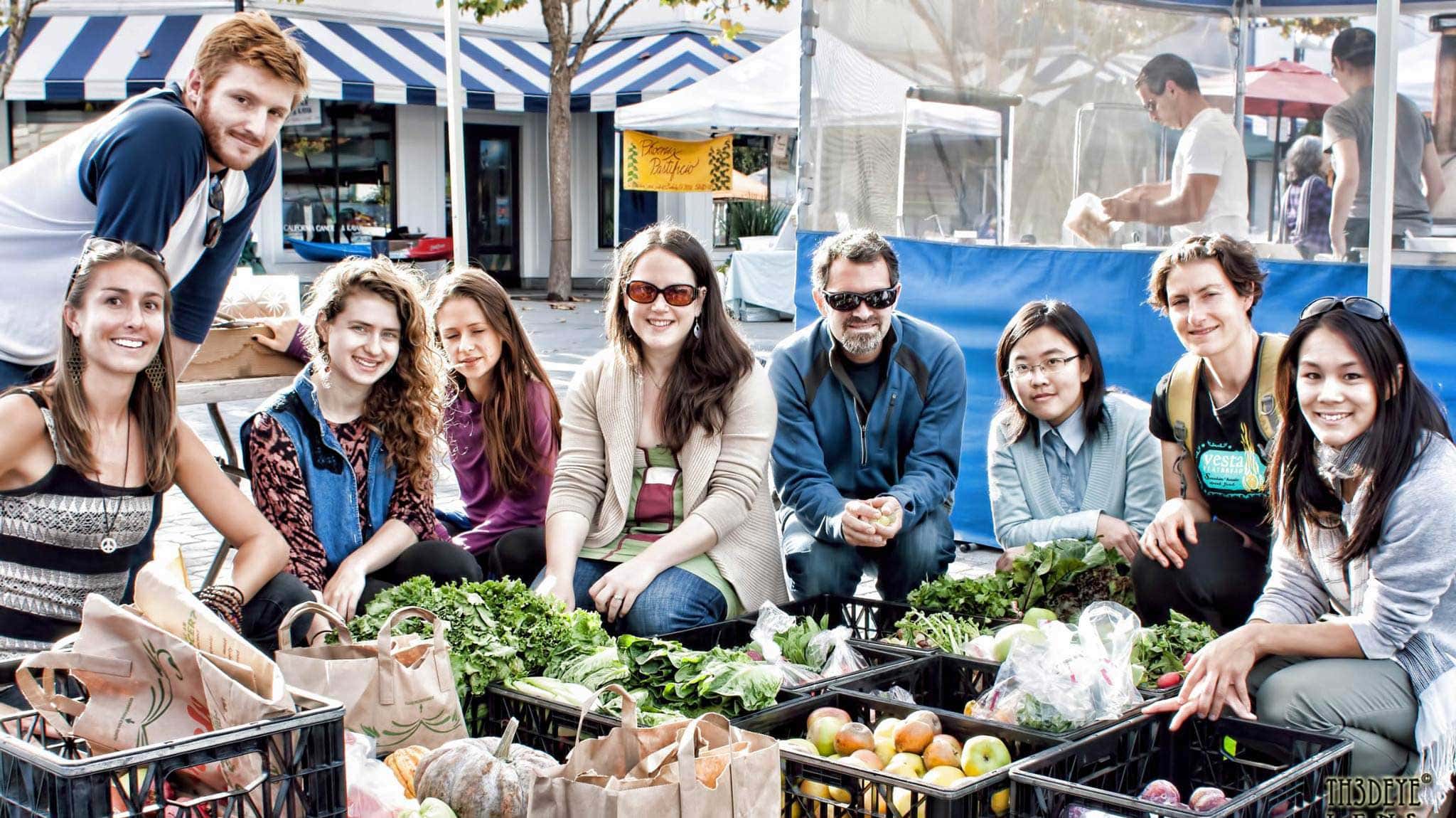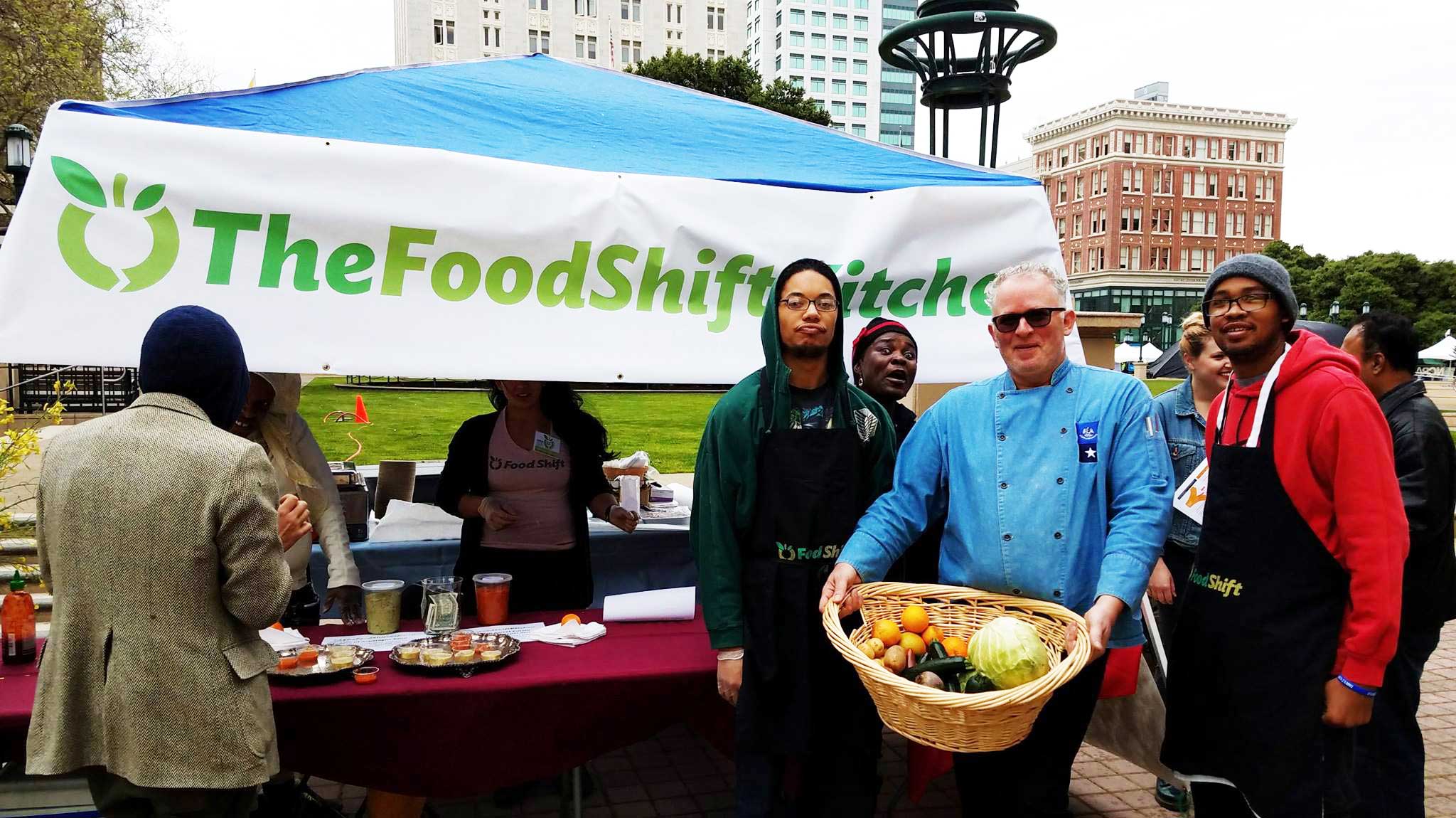
By Priscilla Rodriguez | m/Oppenheim Media Writer
Since 2012, the nonprofit Food Shift, based in the San Francisco Bay Area, has worked with businesses, organizations, and institutions to help them reduce their food waste and cut down costs.
In one instance, Food Shift worked with Andronico’s Community Market to develop a food donation plan that resulted in $27,000 in savings from reduced waste disposal costs in one year. Food Shift arranged for pickups of food which was then distributed by a local soup kitchen. The organization uses various measures to ensure that the food is of high nutritional quality and often collects tons of perfectly edible bruised apples and veggies that cannot be sold on the shelves due to their cosmetic imperfections.
“Food Shift envisions the creation of a food efficiency service sector as an extension of our current waste management system and as a way to create jobs in the green economy,” says Dana Frasz, Founder and Director of Food Shift.
In the U.S. alone, more than 100 billion pounds of food and nearly $150 billion in food production goes to waste every year. According to a report from the USDA Economic Research Service, in 2010 approximately 133 billion lbs. of food and $161 billion worth of food went to waste.
Food Shift has worked with businesses and governments to develop tailored plans aimed at improving food sustainability. In the past, Food Shift has developed a 5-day waste awareness program for Airbnb, supported Nestle in thinking through efforts to utilize surplus food, and developed a report on challenges and opportunities around food efficiency for Santa Clara County.

In addition to its business consulting services, Food Shift has developed its own model to tackle the multifaceted issue of hunger and poverty.
“Food alone will not solve hunger – if we want to solve hunger we need to address poverty. We need to move beyond charity to provide jobs and food is a powerful tool that can motivate,” says Frasz.
Last year, Food Shift launched the Food Shift Kitchen, stationed in Alameda, which serves to train, educate, and employ persons facing employment barriers, such as homelessness. The Kitchen not only trains and equips employees with significant, basic skills needed in most jobs, but also saves tons of food from going to waste every week by turning it into nutritious meals for families in need.
“That’s the way we are linking these three issues: the environmental, public health, and economic issues through this model — through this social enterprise kitchen,” says Frasz.
Frasz says the organization is focused not only on the immediate solutions that help to feed individuals and families suffering from food insecurity, but also on developing long-term solutions to achieve social justice in those areas, including the systems and policies surrounding food equality.
Food Shift has significantly helped to bring these issues to light through education and thought leadership, including supporting the food recovery strategy for Alameda County’s ‘All In To End Hunger 2020’ Campaign in Alameda County.
Now, Frasz says, the next step is to create a movement around food efficiency.
“We believe it is possible to create a more just and efficient food system, where all people have access to nutritious food and no food is wasted. We believe the Bay Area can lead the nation in creating a sustainable food recovery and redistribution model that provides good jobs and more effectively directs surplus food to people in need.”
—
To learn more about Food Shift and its impact on the Bay Area, please visit Foodshift.net
—
